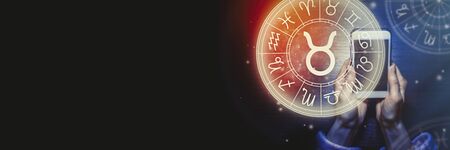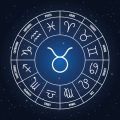Introduction to Elizabethan Astrology
In the golden age of Elizabeth I, astrology was far more than a mystical diversion; it was woven into the very fabric of courtly life and political manoeuvring. The Elizabethan era witnessed a remarkable surge in the popularity and perceived legitimacy of astrology, especially within royal and noble circles. Far from being relegated to the fringes of society, astrologers were frequently consulted on matters ranging from personal fortune to the fate of the nation itself. Their influence extended from predicting auspicious dates for major events to advising on statecraft and foreign policy. At court, astrology became a sophisticated tool for both self-understanding and political strategy, reflecting wider cultural currents that valued knowledge, mystery, and the divine order believed to govern earthly affairs. This intertwining of prophecy and power signified not only a fascination with the stars but also a profound belief in their ability to shape human destiny, positioning astrologers as key players in the theatre of Elizabethan politics.
2. The Astrologers at Court
The Elizabethan court was a vibrant nexus of politics, ambition, and intellectual pursuits, where astrology found not only acceptance but also considerable prestige. The principal astrologers who served Queen Elizabeth I were more than mere stargazers; they were learned men with backgrounds in medicine, mathematics, and classical scholarship. Securing royal favour required both scholarly credentials and political acumen.
Backgrounds of the Principal Court Astrologers
Many of the era’s renowned astrologers hailed from university circles, often holding degrees from Oxford or Cambridge. Their education lent legitimacy to their predictions and allowed them to traverse the delicate boundary between science and mysticism that defined the period. A notable example is Dr John Dee, whose expertise in navigation and mathematics made him invaluable beyond his astrological pursuits. Dee’s interests ranged from alchemy to cryptography, earning him the reputation of a true Renaissance polymath.
Main Figures at Elizabeth’s Court
| Name | Background | Specialisation | Path to Royal Favour |
|---|---|---|---|
| Dr John Dee | Mathematician, Scholar, Occultist | Astrology, Navigation, Alchemy | Advised on naval expeditions; reputed as a trusted confidant of the Queen |
| Richard Napier | Clergyman, Medical Practitioner | Medical Astrology | Became popular for healing abilities and accurate prophecies; patronised by nobility |
| Simon Forman | Chemist, Herbalist, Physician | Horoscopes, Medicine | Gained influence through successful treatments and widely circulated predictions |
Navigating Court Politics
Court astrologers had to be as deft with words as with charts. They carefully calibrated their advice to avoid offending powerful courtiers or overstepping the boundaries set by religious orthodoxy. Patronage was secured not only by impressing the monarch but also through strategic alliances with influential nobles who saw value in astrological insight for political manoeuvring. For many astrologers, survival depended on maintaining discretion, cultivating an air of mystery, and producing results that could be interpreted favourably regardless of outcome.
![]()
3. Astrology and Political Intrigue
Astrology in Elizabethan England was far more than a parlour amusement; it was a tool of political significance, especially within the court. Astrologers such as John Dee and Richard Harvey were often consulted by courtiers and even by Elizabeth I herself when critical decisions loomed. Their horoscopes and predictions were woven into the very fabric of statecraft, providing both guidance and justification for political manoeuvres. The competitive nature of the court meant that rivals eagerly sought astrological insight to anticipate opponents’ actions or curry royal favour.
During Elizabeth’s reign, the threat of foreign invasion, plots against the crown, and questions of succession heightened the demand for astrological counsel. Nobles and politicians commissioned astrologers to cast charts not just for themselves but also for their adversaries, seeking any advantage in the labyrinthine power dynamics of Tudor politics. Prophecies about comets, eclipses, or planetary alignments could spark public anxiety or bolster the legitimacy of particular policies. It was not uncommon for courtiers to leak or even fabricate astrological predictions to sway opinion or undermine rivals, blurring the line between genuine belief and calculated manipulation.
This environment fostered a delicate balance: astrologers had to tread carefully, ensuring their advice pleased those in power while avoiding accusations of sedition or heresy. The Queen herself maintained a shrewd scepticism, using astrology as one instrument among many in her arsenal—never wholly relying on it, but never dismissing its influence on her subjects either. Thus, astrology became both a mirror and a motor for political intrigue, shaping strategies at the highest levels while reflecting the anxieties and ambitions that defined Elizabethan rule.
4. Prophecy and Royal Decisions
The Elizabethan court was a crucible of intrigue, where political strategy and personal reputation were inextricably linked to the mysterious world of astrology and prophecy. Astrologers were not only tasked with reading the stars; their predictions often carried real weight in the halls of power, shaping both Queen Elizabeth I’s decisions and her carefully curated public persona. The impact of prophecies on royal policy is not merely legend but an observable aspect of Tudor governance, documented in both official records and popular memory.
Astrological Guidance in Statecraft
Elizabeth I famously consulted court astrologers such as Dr John Dee, whose reputation for wisdom and mystical insight made him a trusted advisor in matters both celestial and terrestrial. Prophecies regarding auspicious dates for coronations, treaties, or even naval expeditions were taken seriously, often used to justify or delay major decisions. Such reliance on astrology was not unique to Elizabeth but became particularly visible during her reign due to her own cultivated image as the “Virgin Queen” who ruled by divine providence.
Notable Prophecies and Their Outcomes
| Prophecy | Astrologer | Year | Influence on Elizabeth I’s Decision |
|---|---|---|---|
| Prediction of Spanish Armada’s Defeat | Dr John Dee | 1588 | Bolstered national morale; justified defensive preparations and reinforced Elizabeth’s legitimacy as divinely protected |
| Auspicious Date for Coronation | Richard Eden (interpreting charts) | 1559 | Ceremony scheduled for a date deemed favourable by astrological calculation, reinforcing the idea of destiny guiding her rule |
| Warnings of Conspiracies within Court | Simon Forman (post-Elizabethan, based on earlier traditions) | N/A (influential later) | Heightened surveillance and caution among council members; contributed to Elizabeth’s careful navigation of court politics |
The Public Face of Prophecy
The monarchy’s engagement with prophecy was also a potent tool for shaping public opinion. By publicly associating herself with favourable predictions—especially those foretelling peace, prosperity, or military success—Elizabeth fostered an image of a ruler guided by higher forces. This was not lost on her subjects: pamphlets, sermons, and even pageants would echo astrological themes, ensuring that the queen appeared both divinely favoured and exceptionally prudent. Conversely, negative prophecies were sometimes suppressed or ridiculed by the authorities to prevent unrest or diminish the influence of rival factions.
The relationship between prophecy and royal decision-making in Elizabethan England reveals a pragmatic exploitation of belief systems. Far from being mere superstition, astrology served as both a decision-support tool at court and a mechanism for narrative control in the wider realm—a legacy that endures in how we understand power and perception in Tudor Britain.
5. Controversy and Scepticism
The influence of astrologers at the Elizabethan court was by no means unchallenged. While figures such as John Dee and Simon Forman enjoyed royal patronage and public fascination, their practices provoked significant debate and risk. Astrology’s claim to reveal divine intention or predict political events raised suspicion among religious authorities, particularly within the Church of England. Many clergymen regarded astrology as dangerously close to heresy, associating it with superstition and even sorcery. This tension frequently surfaced in sermons and pamphlets, where astrologers were accused of misleading the faithful or undermining the established religious order.
Scholarly scepticism also played a notable role in the controversy surrounding court astrologers. Universities like Oxford and Cambridge maintained a cautious stance, with some academics deriding astrological predictions as lacking scientific rigour. The growing influence of empirical science during the late sixteenth century led to more vocal criticism, with scholars questioning the validity of planetary influences over human affairs. The intellectual climate thus became a battleground between tradition and emerging rationalism.
For astrologers themselves, these disputes carried real dangers. Public accusations could damage reputations or result in legal action, particularly if predictions were seen to incite unrest or challenge the Queen’s authority. Some practitioners took great care to couch their prophecies in ambiguous language or sought protection from powerful patrons at court. Others chose discretion, offering private consultations rather than public pronouncements.
Despite these risks, astrology retained its allure among many courtiers who valued its promise of insight amidst political uncertainty. Yet the ongoing debates highlight how astrology, at the heart of Elizabethan power, was constantly negotiating its place between acceptance and suspicion, faith and reason.
6. Legacy and Influence
The legacy of Elizabethan court astrologers extended far beyond the gilded halls of Whitehall and Hampton Court. Their unique blend of political insight, scientific curiosity, and mystical interpretation left a lasting imprint on British culture. In the centuries following Elizabeth I’s reign, astrology retained a certain prestige, woven into the fabric of early modern thought. It was not merely seen as a tool for personal prediction but as a framework through which the fate of nations could be understood.
Their influence persisted in the spheres of science and philosophy. The intersection between astronomy and astrology during this era laid important groundwork for later advances. Figures like John Dee straddled the worlds of natural philosophy and esoteric study, helping to normalise the pursuit of knowledge that combined observation with interpretation. This experimental spirit contributed to the gradual shift towards empirical science in Britain, influencing thinkers who would later shape the Enlightenment.
On a cultural level, astrological motifs embedded themselves into literature, art, and popular belief. Shakespeare’s works are replete with references to celestial influence—a testament to how deeply these ideas permeated society. Even today, echoes of Elizabethan astrology can be found in British idioms and attitudes towards fate and fortune.
Importantly, the court astrologers also influenced perceptions of power itself. Their close association with the monarch elevated their status and underscored the idea that rulers operated under cosmic guidance. This blend of authority and prophecy reinforced royal mystique while also providing a subtle means for courtiers to negotiate their own positions within the volatile world of Tudor politics.
In summary, the legacy of Elizabethan court astrology is multifaceted: it shaped scientific inquiry, informed cultural expression, and coloured notions of legitimacy and sovereignty. As we reflect on this chapter of British history, it becomes clear that the stargazers at Elizabeth’s court helped define not only their own age but also the enduring relationship between knowledge, power, and belief.


